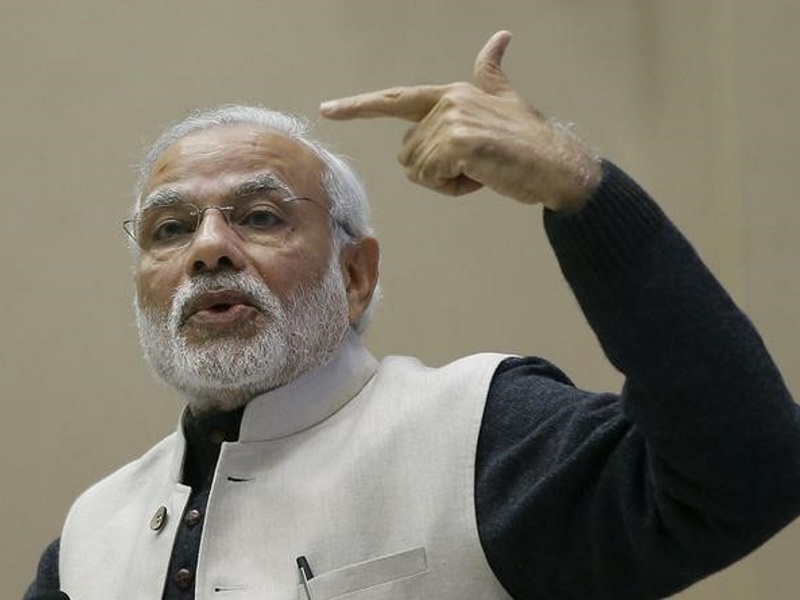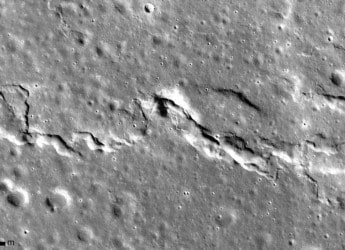- Home
- Science
- Science News
- India to Establish Gravitational Research Lab, Says Prime Minister Modi
India to Establish Gravitational Research Lab, Says Prime Minister Modi

In his monthly radio programme Mann ki Baat, Modi said Indian scientists were also in the research team that studied gravitational waves.
The laboratory will be third of its kind in the world after Hanford in Washington and Livingston in Louisiana, both in the US.
"Recently the Gravitational Waves have been discovered by the scientific community of the world, which is indeed a major achievement. We should be proud of the fact that Indian scientists were also part of it. Keeping this in mind, we have taken a decision to open a LIGO (Laser Interferometer Gravitational-Wave Observatory) in India," said Modi.
LIGO is a national facility for gravitational-wave research, providing opportunities for the broader scientific community to participate in detector development, observation, and data analysis.
The prime minister announced that within its limited resources India will also participate and contribute in the research through the LIGO.
(Also see: Meet LIGO, the World's Most Sophisticated Science Machines)
Earlier this month, the Union cabinet approved a proposal to establish a state-of-the-art gravitational wave observatory in India in collaboration with the Laser Interferometer Gravitational-wave Observatory (LIGO) in the US.
The "in principle" approval for the LIGO-India project for research on gravitational waves - a discovery that is regarded as the breakthrough of the century - is piloted by the Department of Atomic Energy and Department of Science and Technology (DST), a press release said.
Get your daily dose of tech news, reviews, and insights, in under 80 characters on Gadgets 360 Turbo. Connect with fellow tech lovers on our Forum. Follow us on X, Facebook, WhatsApp, Threads and Google News for instant updates. Catch all the action on our YouTube channel.
- Samsung Galaxy Unpacked 2026
- iPhone 17 Pro Max
- ChatGPT
- iOS 26
- Laptop Under 50000
- Smartwatch Under 10000
- Apple Vision Pro
- Oneplus 12
- OnePlus Nord CE 3 Lite 5G
- iPhone 13
- Xiaomi 14 Pro
- Oppo Find N3
- Tecno Spark Go (2023)
- Realme V30
- Best Phones Under 25000
- Samsung Galaxy S24 Series
- Cryptocurrency
- iQoo 12
- Samsung Galaxy S24 Ultra
- Giottus
- Samsung Galaxy Z Flip 5
- Apple 'Scary Fast'
- Housefull 5
- GoPro Hero 12 Black Review
- Invincible Season 2
- JioGlass
- HD Ready TV
- Latest Mobile Phones
- Compare Phones
- Vivo V70
- Vivo V70 Elite
- Google Pixel 10a
- Tecno Camon 50
- Tecno Camon 50 Pro
- Lava Bold N2
- Vivo V60 Lite 4G
- Tecno Pova Curve 2 5G
- Asus Vivobook 16 (M1605NAQ)
- Asus Vivobook 15 (2026)
- Infinix Xpad 30E
- Brave Ark 2-in-1
- boAt Chrome Iris
- HMD Watch P1
- Xiaomi QLED TV X Pro 75
- Haier H5E Series
- Asus ROG Ally
- Nintendo Switch Lite
- Haier 1.6 Ton 5 Star Inverter Split AC (HSU19G-MZAID5BN-INV)
- Haier 1.6 Ton 5 Star Inverter Split AC (HSU19G-MZAIM5BN-INV)


![[Partner Content] OPPO Reno15 Series: AI Portrait Camera, Popout and First Compact Reno](https://www.gadgets360.com/static/mobile/images/spacer.png)









